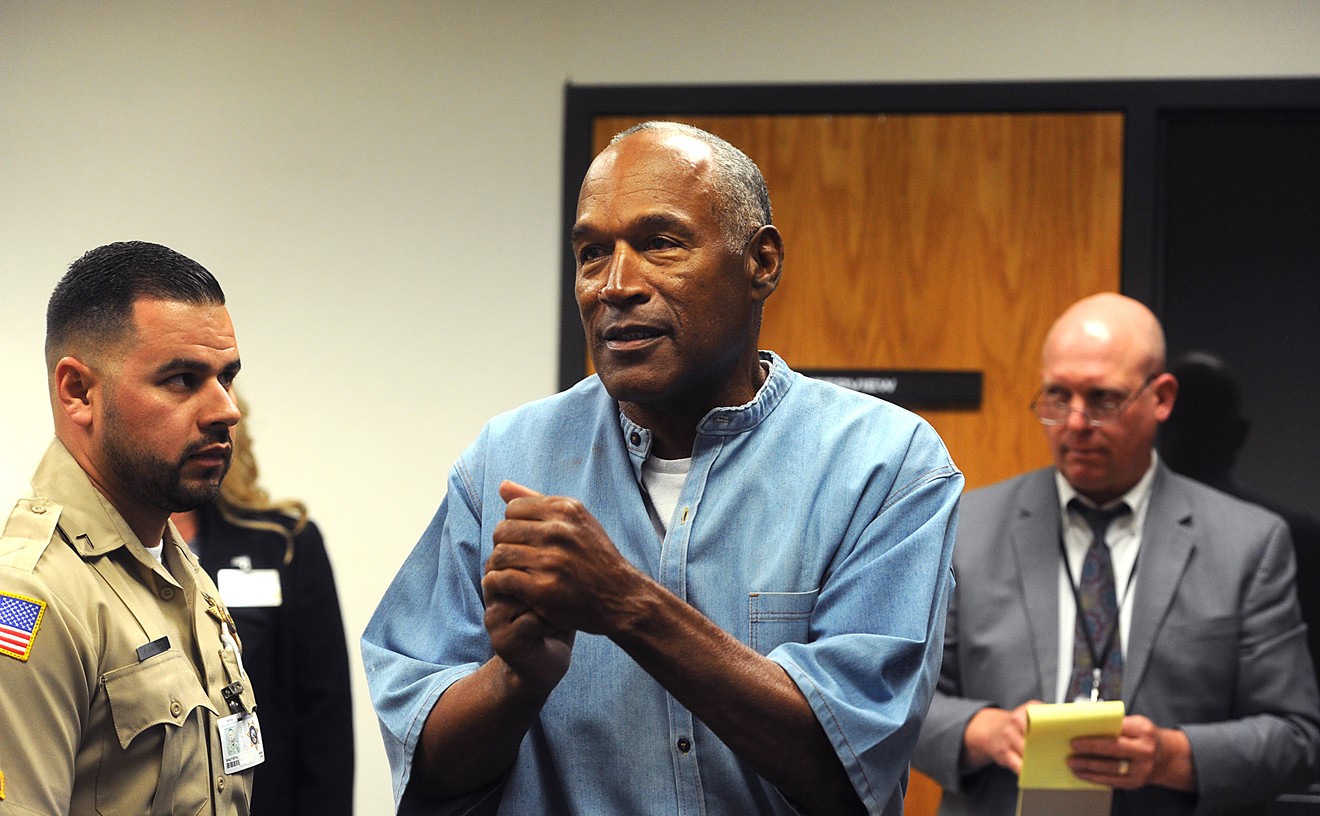Casta*eda's and Kearson's heads rolled in a purge of the city's Neighborhood Jobs Program, a division of the Community Development Department. Kearson, the 49-year-old head of the program who until that time had an impeccable job-performance record, was fired from his $70,000-per-year post after his own union caught him running personal errands on city time. Two other workers were terminated for allegedly faking time sheets or falsifying academic credentials. As supervisor of the department, the 44-year-old Casta*eda was booted because the infractions occurred under his watch.
Lost in the hullabaloo over the dismissals was the quiet celebration of one man. Charles Dawkins, nephew of City Commissioner Miller Dawkins and a career bureaucrat who has bounced from one city job to another, has outlasted his enemies. Back in 1991, Kearson and Casta*eda asked for Charles Dawkins's dismissal after Dawkins tampered with city records. He survived that scare, as he had survived a potential dismissal a few years earlier. Now he has survived Kearson and Castaneda.
The first time Dawkins was nearly fired, he was working for Miami Capital Development, the city's distributor of small-business loans. In 1987 his supervisor accused him of submitting inflated and inaccurate mileage reimbursement forms. The supervisor recommended termination but was overruled by the department head, and Dawkins was merely placed on probation.
Four years later, Dawkins had moved on to a new post -- economic analyst at the Neighborhood Jobs Program. His bosses, Kearson and Casta*eda, accused him of forging signatures on city documents and requested that he be fired. "He admitted to falsifying documents. He didn't accept calling it forgery, but he admitted signing the documents," Castaneda complained in a 1991 Miami Herald article about the incident.
There was no proof that Dawkins personally profited from the misdeeds, and again he kept his job. For weeks afterward, he sat at his desk with no assignments, collecting more than twenty dollars per hour in pay -- more than $6000 in all -- until Castaneda had Dawkins transferred to Beckham Hall, a county-run homeless shelter staffed in part by city workers. ("We can't trust him to do anything," Castaneda was quoted as saying at the time.)
Kearson, who ran the jobs program for seventeen years, contends the transfer was what eventually brought him down, as it did Casta*eda, a nineteen-year employee. "Ever since we took on Charles Dawkins, Odio and Miller Dawkins have been out to get us," he mutters. "It took them this long." Kearson has retained an attorney and has applied for a Civil Service Board review.
The official reason for Kearson's firing, according to Charlie Cox, president of the American Federation of State, County & Municipal Employees (AFSCME) Local 1907, can be traced back to Kearson's belligerent management style, not a city hall conspiracy. Kearson has a history of complaining about his staffers, Cox says, and the union could only take so many complaints before they turned the investigation on Kearson himself. "People who live in glass houses should not throw stones," the union head expounds.
Most recently Kearson became disillusioned with employee Charles Hobson. The job-training supervisor was unable to meet regular deadlines, Kearson noted, and he began to doubt the validity of Hobson's academic credentials. "It was a hunch," Kearson explains. "I had a hunch that he wasn't who he said he was."
The hunch proved correct. Kearson received letters from London University and the College of the Virgin Islands explaining that Hobson did not have the degrees he had claimed on his city application. Kearson complained about Hobson to the city, which determined the allegations to be true. (Hobson could not be reached for comment for this story.)
But before Hobson was fired, the union investigated Kearson. Complaints on file at the union dating from 1991 indicate that Kearson was allegedly not working the regular 8:00 a.m. to 5:00 p.m. hours mandated by department policy. And this past summer, the complaints were substantiated by the union's own investigation. On two days in July, private investigators hired by the union noted that Kearson didn't leave his house before 10:00 a.m. On one day in September, the investigation was halted when Kearson hadn't left his house by 1:00 p.m. On all three of those days, Kearson wrote on his official time sheets that he had worked from 8:00 a.m. to 5:00 p.m.
Kearson does not dispute the investigative reports. He claims, though, that as a salaried employee he worked extraordinary hours, and always more than the 40 hours per week for which he was paid. In reference to the tardiness, he asserts that he sometimes worked at his house. His employee evaluations, on file at the Department of Personnel Management, are exemplary.
What concerns him most, Kearson says, is that his union chose to investigate a dues-paying member. It smacks of a deal between union president Cox and both Cesar Odio and Miller Dawkins, he asserts. "For the union to spend funds -- my funds -- to investigate me is ridiculous. When I called Cox to complain about it, he told me that I was stepping on a few toes [when I went after Charles Dawkins]." (Neither Dawkins nor Odio could be reached for comment.)
There is almost no way Dawkins or Odio could have influenced the union's decision to represent Charles Dawkins or to investigate Kearson, Cox counters. The union didn't support Dawkins in the commissioner's last two elections, he points out. And as long as he is union head, Odio can't fire him for any reason. (A supervisor in the Division of Property Maintenance, Cox receives his city salary even though he works exclusively for the union. His sole responsibility is to his union members, who have expressed their confidence by retaining him as union president eight years in a row.)
Cox admits that he did spend "a few thousand dollars" tracking Kearson's work habits. But he claims to have spent far more union money defending city employees that Kearson tried to have dismissed. "I was forced to spend the money to investigate him because he was harassing so many of my members. I didn't have a choice."
Unlike the other fired staffers, Casta*eda has the option of returning to work for the city, though not at the management level. Should he go back, he would take close to a 30 percent pay cut from the $98,700 he earned as director of the Community Development Department. Odio has given Casta*eda 21 days to decide whether he wants to return to the city. Casta*eda says he plans to take all 21 days before making a decision.
Charles Dawkins could not be reached for comment for this story. On December 4, he appeared before the city's civil service board. Speaking through his union-appointed attorney, Dawkins leveled abuse-of-power charges against Casta*eda and Kearson, claiming that his transfer to Beckham Hall was a form of punishment that stymied his chances of advancing through the City of Miami bureaucracy. Earlier, in a letter to the board, his lawyer argued that City Commissioner Miller Dawkins has often clashed with Kearson and Casta*eda, and that the two former employees "embarked on a program of vengeance by interfering in Mr. Charles Dawkins's employment with the City."
The board voted unanimously to investigate the incident.
Kearson is certain the conclusion will be in his favor. "This man can't keep a job in the city," says Kearson, who intends to appeal his dismissal before the board. "Nobody wants him, but nobody can fire him.










